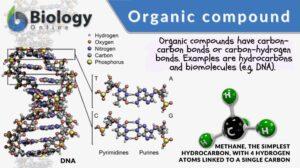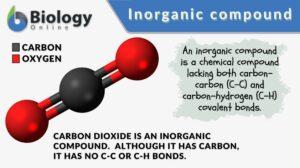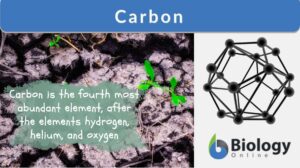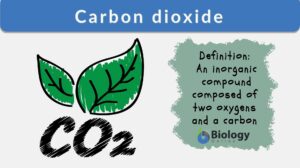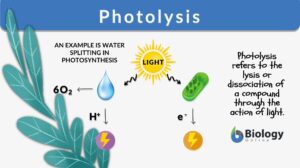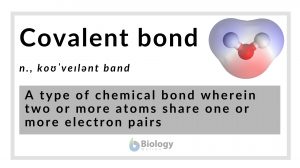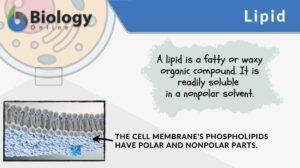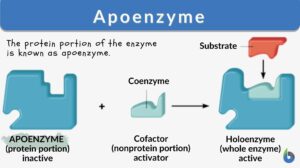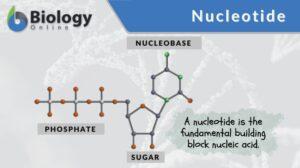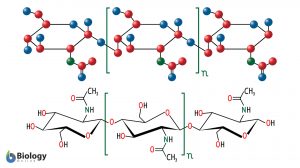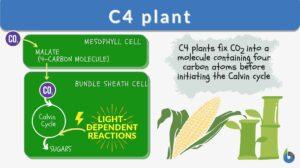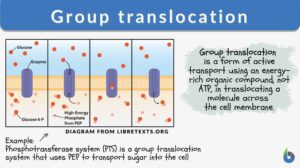Search Results for: compound
Organic compound
Organic Compound Definition An organic compound is a compound that, in general, contains carbon covalently bound to other... Read More
Inorganic compound
Inorganic Compound Definition An inorganic compound is a chemical compound lacking both carbon-carbon (C-C) and... Read More
Cyclic compound
Cyclic compound Any compound in which the constituent atoms, or any part of them, form a ring. Used mainly in organic... Read More
Compound microscope
Compound microscope (Science: instrument) a microscope (an optical instrument that augments the power of the eye to see... Read More
Ionic bond
Definition noun plural: ionic bonds A type of chemical bond in which atoms, ions, or molecules are held together by... Read More
Polar compound
Definition noun, plural: polar compounds A compound made up of molecules joined by assymetrical polar... Read More
Nonpolar compound
Definition noun, plural: nonpolar compounds A compound comprised of molecules linked through chemical bonds arranged in such... Read More
Compound names
Compound name (Science: zoology) One that is formed by the union of two or more basic components, excluding prefixes and... Read More
Phosphorylation
Phosphorylation Definition We can define phosphorylation as a biochemical process in which a phosphate molecule is added to... Read More
Carbon dioxide
Carbon Dioxide Definition noun, car·bon di·ox·ide, /daɪˈɒksaɪd/ (biochemistry) An inorganic compound, with the... Read More
Photolysis
Photolysis Definition We define photolysis as a chemical process in which chemical compounds or molecules are split into... Read More
Amphipathic
Amphipathic Definition Amphipathic is a word used to describe a chemical compound containing both polar (water-soluble) and... Read More
Carbohydrate
Carbohydrate Definition A biomolecule refers to any molecule that is produced by living organisms. As such, most of them... Read More
Redox reaction
Redox Reaction Definition What are redox reactions? This is a common term in chemistry and biology. In chemistry, a redox... Read More
Covalent bond
Covalent Bond Definition What is a covalent bond? In chemistry and other fundamental science fields, a covalent bond is... Read More
Calvin cycle
Calvin Cycle Definition The Calvin cycle, also known as the Calvin Benson cycle or the dark reactions, is a series of... Read More
Glycolysis
What is Glycolysis and Why is it Important? Glycolysis is a metabolic pathway by which the 6-carbon molecule of glucose is... Read More
Fermentation
Fermentation Definition What is fermentation? Fermentation is the breaking down of sugar molecules into simpler compounds... Read More
Photosynthesis – Photolysis and Carbon Fixation
Photosynthesis is the means that primary producers (mostly plants) can obtain energy via light energy. The energy gained... Read More
Dehydration reaction
What is dehydration synthesis? A dehydration reaction is a form of biochemical reaction wherein a water molecule is lost or... Read More
Nucleotide
Nucleotide Definition A nucleotide is regarded as the basic building block of nucleic acid (e.g. DNA and RNA). A nucleic... Read More
Organic matter
Definition noun Any of the carbon-based compounds found in nature Supplement Organic matter pertains to any of the... Read More
Phenol coefficient
Chemical disinfectants are categorized based on the power of their disinfection for microbes and viruses. Strong... Read More
Fruits, Flowers, and Seeds
Flowering plants grow in a wide variety of habitats and environments. They can go from germination of a seed to a mature... Read More
Chemosynthesis
Definition noun, plural: chemosyntheses The production of a more complex chemical compound by combining two or more simpler... Read More
Group translocation
Group Translocation Definition Just like your “home” is a private place where you and your comfort are maintained due... Read More
Pyrimidine
Definition noun plural: pyrimidines py·rim·i·dine, py·rim·i·dine A heterocyclic aromatic compound that presents as... Read More

